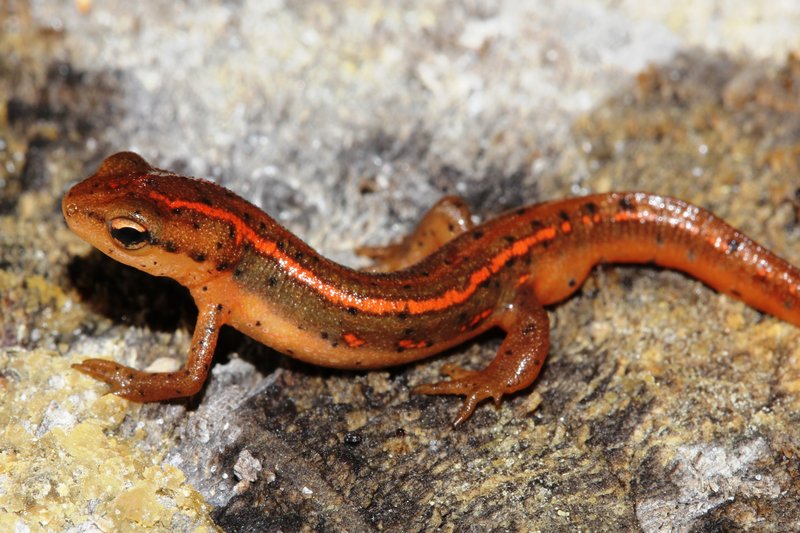For Immediate Release, June 27, 2025
|
Contact: |
Chelsea Stewart-Fusek, (971) 717-6425, [email protected] |
Legal Victory Gives Striped Newt Another Chance at Endangered Species Protections
WASHINGTON— In a legal victory for the Center for Biological Diversity, the U.S. Fish and Wildlife Service today agreed to consider granting Endangered Species Act protections to the striped newt, which lives in Florida and Georgia.
In 2018 the Trump administration wrongly denied striped newts protection despite significant population declines across their range and numerous threats to the animals. Today’s agreement requires the Service to make a new decision in 2030 on whether to protect the newts.
“I’m thrilled the Fish and Wildlife Service will take another look at granting protections for this sweet little newt,” said Chelsea Stewart-Fusek, an endangered species attorney at the Center. “It’s imperative we safeguard striped newts and what’s left of their homes if they’re going to survive the devastation of climate change. They should have been protected years ago.”
The Service determined more than a decade ago that striped newts warrant protection, but the agency placed the species on a wait list. Then the Service suddenly reversed course and denied the newts protection altogether under the first Trump administration, which led the Center to sue to get Endangered Species Act protections for the animals.
Striped newts live in the longleaf pine ecosystem, a fire-dependent forest habitat that once covered 92 million acres in the Atlantic and Gulf Coast regions. By the 21st century, 97% of longleaf pine had been lost to logging and fire suppression, and just 2% of this ecosystem remains today.
The remaining newt habitat has also been severely degraded and fragmented by agriculture, fire suppression and urban development. On top of these threats, unusually prolonged droughts caused by climate change dry out the newt’s breeding ponds. Newt populations are declining even on public lands that are protected from most development.
“Just like many amphibians, the threats facing the newt compound on one another and are worsening as climate change accelerates,” said Stewart-Fusek. “Protecting the striped newt means protecting and restoring the special places that both newts and people need.”
Wetlands are not only biodiversity hotspots, but also filter drinking water and make communities more resilient to flooding, drought and wildfire. Since European settlement, more than 50% of the United States’ wetlands have been destroyed. A 2024 report found that the rate of wetland loss has accelerated by 50% since 2009, with freshwater forested wetlands experiencing the greatest losses.

The Center for Biological Diversity is a national, nonprofit conservation organization with more than 1.8 million members and online activists dedicated to the protection of endangered species and wild places.

